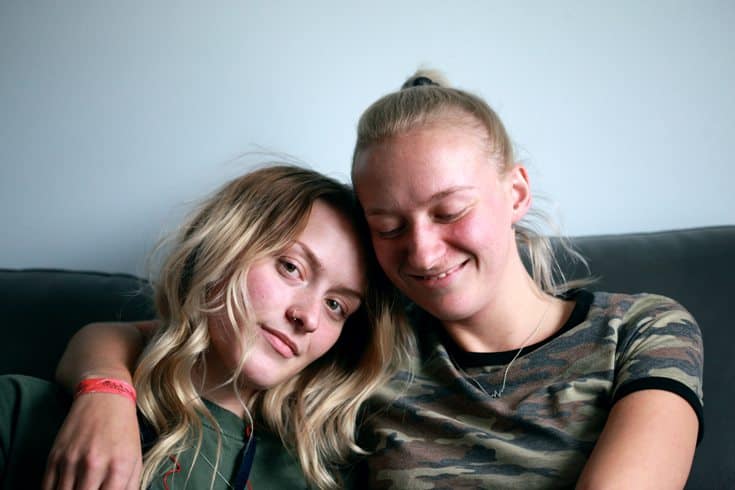What is an Asexual Relationship?
An asexual relationship, or simply asexuality, is a form of relationship that does not involve sexual activities or sexual desire.
Asexuality or “ace” is also considered as a sexual orientation wherein there is an absence of sexual interest for other people across all gender identities.
Although they lack sexual attraction to any gender, asexual individuals may still engage in purely romantic relationships. Affection is usually expressed by hugging and doing fun activities together.

Cara and Sam
Cara and Sam are one of our favorite couples. They are almost always present in all our talks and symposia. They also like to attend our round-table discussions and even offer to help whenever we organize community programs.
Cara and Sam are part of the LGBTQ+ community. Cara is a female bisexual while Sam is an asexual lesbian.
The biggest challenge in their relationship is managing intimacy. Sam, being asexual, doesn’t find sex appealing and doesn’t develop sexual attraction to anyone.
She’s content with hugging, holding hands and sharing her passion with the person she’s in a relationship with. Cara, on the other hand, is trying to understand Sam’s sexuality. With our help, they were able to make certain compromises.

Cara expresses her affection by way of supporting Sam and understanding that there are other ways to express intimacy without having sex such as lingering kisses and constant hugs.
Sam tries to compensate her lack of sexual desire by treating Cara to warm massages and allowing her to use sex toys whenever she’s having bouts of sexual urges.
They also communicate each other’s feelings all the time and spend every weekend doing various activities. These contribute to a stronger bond and healthier relationship.
How to Have a Happy Asexual Relationship
Just like how the LGBTQ+ community encompasses a wide array of identities and sexualities, asexuality also hosts a spectrum of non-sexual sexualities.
In fact, asexuality could mean something different for every individual. For instance, asexuality is not a choice but rather a part of someone’s nature or identity.
Some asexual people can also like sex but are not capable of being sexually-attracted to anyone. Some even agree on being Friends with Benefits to some extent.
Since asexuality is centered on sexual attraction, asexual people can still enjoy sexual activities without being sexually-attracted to a person.
Here are some tips on how to have a happy and healthy asexual relationship;
Help your partner understand you asexuality
Be honest with your partner and take the time to make him/her understand your sexuality. There are a number of resources you can show online or you can try explaining your asexuality based on how you understand yourself personally.

Make your partner understand that sex is not synonymous to intimacy
There is a misconception that sex is essential to maintain a healthy relationship. However, what if you don’t want sex but you enjoy other forms of intimacy?
Yes, you and your partner can share intimacy without engaging in sexual activities. Therefore, you should not allow yourself to be pressure by the idea. After all, there is no need to validate any part of your identity to anyone as long as you are certain about yourself.
Consider going for couple counselling
Relationship experts and specialists understand all forms of relationships, gender orientations and sexual preferences that exist nowadays.
If you and your partner feel that you need professional help to manage your relationship and to understand each other better, consider going for couple counselling.
A counselling session can help you find suitable solutions to your issues so you can achieve a healthier and happier relationship.

